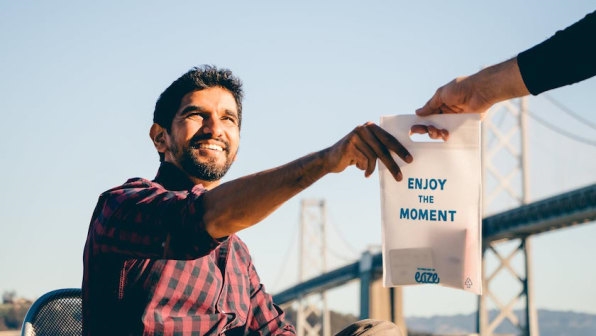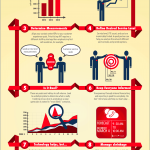How The Hood Incubator Is Empowering People Of Color In Cannabis
In late 2016, Ebele Ifedigbo knew California was on the verge of legalizing recreational marijuana. So with barely $2,000 in hand, Ifedigbo—along with cofounders Lanese Martin and Biseat Horning–started the Hood Incubator, an Oakland-based nonprofit whose goal is to address the lack of inclusivity in the cannabis industry.
“We were just like, we’ve got to make something happen,” Ifedigbo tells me. “The marijuana industry was already fast-moving . . . We knew there was a very limited window of time to create the level of impact that we wanted to make.”
Ifedigbo notes that the incubator rarely uses the words “diversity” or “inclusion” to characterize its mission because equity should be “built into the actual DNA of how that industry operates,” not an afterthought. And so, the incubator’s approach is three-pronged: community organizing, policy and advocacy, and economic development.
The latter takes the form of a business accelerator, which offers mentorship to entrepreneurs who want to enter the cannabis industry or operate an aboveboard business, as well as an apprenticeship program, which pairs people from the Hood Incubator with existing companies. (One such partner is Jetty Extracts, an Oakland-based cannabis extract producer.) Eventually, the hope is to create an ecosystem that is mutually beneficial–say, a co-op model that yields combined distribution or marketing for businesses in a community.
“As the industry continues to get more competitive and more crowded, it’s going to be harder and harder for smaller operations to survive just on their own,” Ifedigbo adds.
To that end, the Hood Incubator is still working on increasing access to funding for entrepreneurs in the accelerator program. Ifedigbo says Hood has brokered relationships with some investors and participants in Oakland’s equity program–but the next step is being able to grant entrepreneurs direct financial support.
“We’re in the beginning stages of creating an investment fund that’s targeted specifically toward black and brown cannabis entrepreneurs,”Ifedigbo says. “So right now, we’re in the phase of just shopping around our investment memos to different investors and gathering a few anchor investors.”

Partners In Pot
The Hood Incubator’s recently announced partnership with marijuana delivery startup Eaze should help with that. Eaze is the rare cannabis startup with a war chest–more than $50 million in funding and a valuation upward of $154 million. Now, Eaze is investing some of that capital into elevating people of color in cannabis, most of whom have to fight to get a fraction of that funding. Over the next three years, Eaze will spend $1 million on what it described as “social equity efforts in the Bay Area cannabis industry.”
Teaming up with the Hood Incubator is one piece of that endeavor. Ifedigbo admits they’re still sussing out what that partnership will encompass. But the initial priority is tackling how to turn the dearth of equity in cannabis into a national dialogue, especially because legislation and advocacy efforts are so different state by state.
“The first big project that we want to put our heads together on is thinking through: How can we come up with a national cannabis equity strategy?” Ifedigbo says. “What does legislation need to look like? What are the business development initiatives that need to be part and parcel of these efforts going forward?”
The partnership unites mission and access: As Ifedigbo notes, Eaze has “deep connections” across tech and cannabis—in other words, cachet and power. Ifedigbo also sees the tie-up as a way to hold allies like Eaze to their word.
“Black and brown communities may or may not be your consumers,” Ifedigbo says. “But how do you make sure you’re using your platform and privileges and access to advance the goals of cannabis equity–even when it’s not easy, or even when you have to put aside a part of your privilege and divert your power? Maybe you have to choose between making another million dollars, or using your platform to advocate for a community that will never have access to that million dollars.”
Fast Company , Read Full Story
(18)














